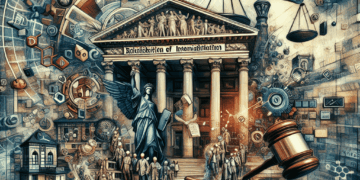No products in the cart.
A media intermediary is a service that aggregates, selects and presents content on the internet in a way that is generally accessible to users without combining this content into an overall offering. This term was introduced in Germany with the Interstate Media Treaty (MStV) and aims to regulate the role of platforms such as search engines, social networks and other content aggregators in the digital media ecosystem.
Key Facts
- Media intermediary aggregates content, but does not present it as a complete offer, according to MStV.
- The legal basis is the German Interstate Media Treaty (MStV) and relevant EU regulations.
- The main obligations include transparency, non-discrimination and reporting obligations.
- Regulation is aimed at diversity of opinion, better algorithm transparency and combating disinformation.
- The challenges are technical complexity and an international dimension.
- Regulation strengthens digital sovereignty and offers new market opportunities for German companies.
- Future developments include European harmonization and the influence of new technologies.
Legal basis
This forms the legal basis for media intermediaries in Germany:
1. the Interstate Media Treaty (MStV), in particular §§ 91-96
2. state media laws that implement the MStV
3. relevant EU regulations such as the Digital Services Act (DSA) and the Digital Markets Act (DMA)
Definition and delimitation
According to Section 2 Para. 2 No. 16 MStV, a media intermediary is “any telemedium that also aggregates, selects and presents journalistic and editorial content from third parties in a generally accessible manner without combining it into an overall offering.”
Examples of media intermediaries:
1. search engines (e.g. Google, Bing)
2. social networks (e.g. Facebook, Twitter)
3. video sharing platforms (e.g. YouTube)
4. news aggregators (e.g. Google News)
Core elements of regulation
The MStV provides for the following main obligations for media intermediaries:
1. transparency: disclosure of the criteria that determine access to content and its presentation (Section 93 MStV)
2. freedom from discrimination: prohibition of systematic discrimination against journalistic-editorial content (Section 94 MStV)
3. labelling obligation: social bots must be labelled as such (Section 18 (3) MStV)
4. reporting obligation: regular reporting on the functioning of the algorithms used (Section 95 MStV)
Significance and effects
The regulation of media intermediaries has far-reaching effects:
1. Diversity of opinion: The aim is to protect and promote the diversity of opinions in the digital space.
2. Algorithm transparency: Users should better understand how content is selected and presented.
3. Promoting competition: The ban on discrimination should enable fairer competition between different media offerings.
4. Combating disinformation: The regulations should help to curb the spread of misinformation.
Challenges and criticism
The regulation of media intermediaries faces various challenges:
1. technical complexity: The disclosure of algorithms can be technically and economically challenging.
2. international dimension: Many media intermediaries operate globally, which makes it difficult to enforce national regulations.
3. inhibition of innovation: Critics argue that overly strict regulations could hinder innovation.
4. demarcation problems: The precise definition and delimitation of media intermediaries can be difficult in practice.
Significance for the German market
The regulation of media intermediaries is particularly relevant for the German market:
1. media pluralism: Germany traditionally attaches great importance to media diversity and pluralism.
2. data protection: The regulations supplement the already strict German data protection provisions.
3. digital sovereignty: The regulation is seen as a step towards strengthening the digital sovereignty of Germany and Europe.
4. market opportunities: New opportunities could arise for German companies if large international platforms are more strictly regulated.
Future prospects
The regulation of media intermediaries is a dynamic field:
1. European harmonization: With the Digital Services Act and the Digital Markets Act, the EU is striving for more uniform regulation.
2. Technological development: New technologies such as AI will continue to influence the debate on the regulation of media intermediaries.
3. Global standard setting: The German and European approaches could serve as a model for global standards.
Conclusion
The regulation of media intermediaries through the Interstate Media Treaty represents an important step towards tackling the challenges of the digital media landscape. It aims to promote transparency, fairness and diversity in digital information dissemination. At the same time, it presents companies with new challenges and raises complex questions about the balance between regulation and innovation. The further development and implementation of these regulations will significantly shape the future of the digital media landscape in Germany and beyond.





















